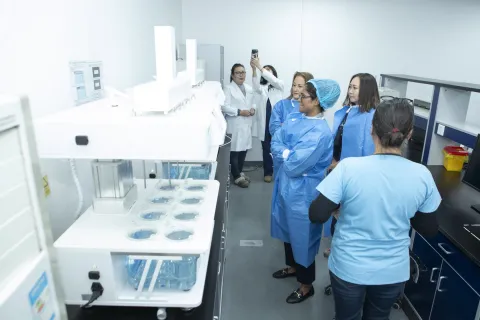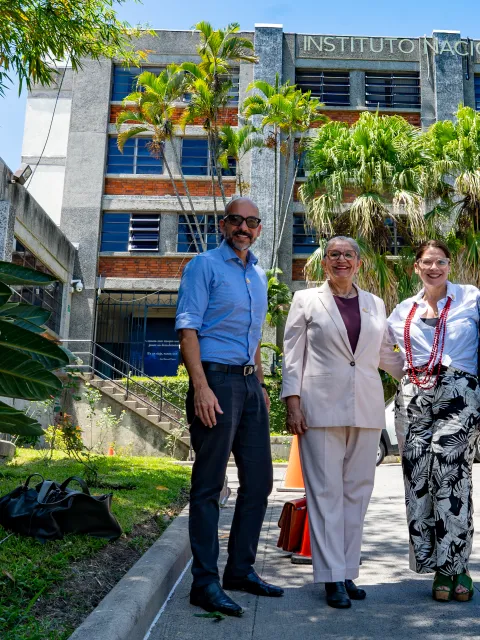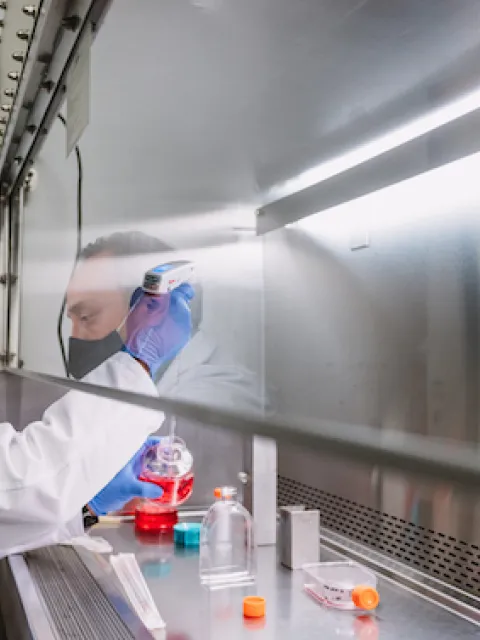Supporting national efforts to strengthen cancer care in Mongolia
The UICC-led ATOM Coalition secured ministerial backing for a national strategy aimed at expanding access to cancer medicines and services across the country.

HIGHLIGHTS
- The ATOM Coalition Secretariat conducted a mission to Ulaanbaatar, Mongolia in September to co-develop a plan in response to cancer care priorities identified in the Coalition’s workshop convened last year.
- The Minister of Health formally endorsed the ATOM Coalition’s strategy to improve access to oncology medicines in the country.
- A national action plan detailing the priority projects that will improve access to cancer medicines in Mongolia with timelines, indicators, and partner roles will be completed in October 2025
- The mission also highlighted opportunities to support the decentralisation of cancer services by expanding activities to the newly opened National Cancer Center branch in Erdenet in northern Mongolia.
In early September, the ATOM Coalition Secretariat conducted a week-long mission to Ulaanbaatar, engaging with national institutions and international partners to set the foundation for the implementation of cancer access priorities in Mongolia.
The main objective of the mission was to obtain an endorsement from the Minister of Health for the ATOM Coalition’s strategy to improve cancer medicines access in Mongolia – a framework developed from the outcomes of a national workshop with Mongolian experts and ATOM Coalition partners.
A comprehensive national action plan outlining priority projects and partner contributions to strengthen access to cancer medicines in Mongolia is expected to be finalised in October 2025. This plan will serve as the roadmap guiding the Coalition and its partners’ work in the country through 2028.
Throughout the week, ATOM Coalition representatives met with key institutions including the Medicines and Medical Device Regulatory Agency, WHO, UNICEF, the Central Pathology Lab, and the National Cancer Center, alongside visits to several hospitals and diagnostic facilities.
The mission also took place in the context of major developments in Mongolia’s cancer policy landscape. The appointment of Dr Jigjidsuren Chinburen, formerly Director of the National Cancer Center, as Minister of Health reflects a continued national commitment to cancer control.
Notable progress includes the development of a new national cancer control plan focusing on seven priority cancers, and the opening of a new National Cancer Center (NCC) branch in Erdenet, capital of Orkhon Province in northern Mongolia, which serves an estimated 10% of the population. Previously, that 10% would have had to travel to the capital Ulaanbaatar for cancer services, and now they can access care closer to home. This also reduces the number of cases at the NCC in the capital, alleviating high volume at the facility.
With these developments in Mongolia, the ATOM Coalition can accelerate its work with partners to strengthen procurement systems, improve diagnostic capacity, and enhance the appropriate use of cancer medicines — all with the aim of delivering better outcomes for patients.
“It is very encouraging to see the progress and to work with so many committed partners in Mongolia. The momentum we have created and the endorsement from the Minister of Health give us confidence that together, we can turn these plans into real impact for patients.”
– Anna Cabanes, Senior Technical Advisory for Country Support, ATOM Coalition
Last update
Tuesday 14 October 2025
